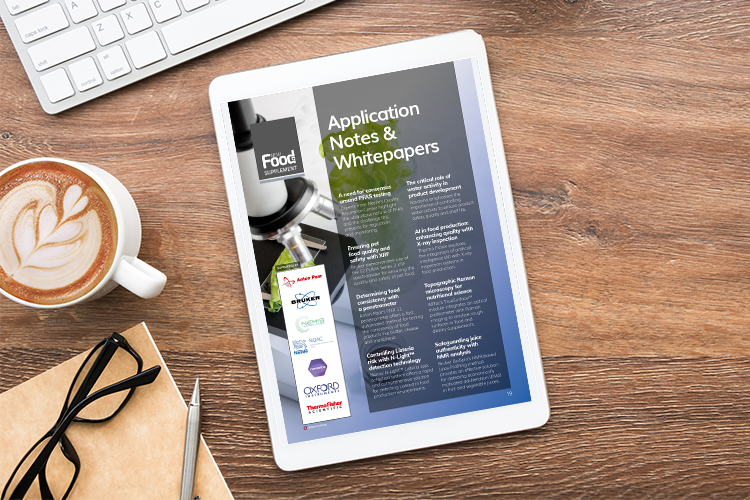Application Notes – Issue 3 2024
Supported by:
Published: 5 December 2024
Share this post
- Like
- Digg
- Del
- Tumblr
- VKontakte
- Buffer
- Love This
- Odnoklassniki
- Meneame
- Blogger
- Amazon
- Yahoo Mail
- Gmail
- AOL
- Newsvine
- HackerNews
- Evernote
- MySpace
- Mail.ru
- Viadeo
- Line
- Comments
- Yummly
- SMS
- Viber
- Telegram
- Subscribe
- Skype
- Facebook Messenger
- Kakao
- LiveJournal
- Yammer
- Edgar
- Fintel
- Mix
- Instapaper
- Copy Link
Read about the advanced tools shaping the future of food safety and quality assurance including PFAS testing and AI-powered inspection.


In this essential Application Notes supplement, discover cutting-edge solutions from industry experts addressing some of the key challenges facing the industry.
Access exclusive content now including:
A need for consensus around PFAS testing
Experts from Nestlé’s Quality Assurance Center highlight the ubiquitous nature of PFAS and the challenge this presents for regulation and monitoring.
Ensuring pet food quality and safety with XRF
Bruker demonstrates use of the S2 PUMA Series 2 XRF spectrometer for ensuring the quality and safety of pet food.
Determining food consistency with a penetrometer
Anton Paar’s PNR 12 penetrometer offers a fast, automated method for testing the consistency of food products like butter, cheese and margarine.
Controlling Listeria risk with N-Light™ detection technology
Nemis’ N-Light™ Listeria spp. detection system offers a rapid and comprehensive solution for detecting Listeria in food production environments.
The critical role of water activity in product development
Novasina emphasises the importance of controlling water activity to ensure product safety, quality and shelf life.
AI in food production: enhancing quality with X-ray inspection
Thermo Fisher explores the integration of artificial intelligence (AI) with X-ray inspection systems in food production.
Topographic Raman microscopy for nutritional science
WITec’s TrueSurface™ module integrates an optical profilometer with Raman imaging to analyse rough surfaces in food and dietary supplements.
Safeguarding juice authenticity with NMR analysis
Bruker BioSpin’s NMR-based Juice-Profiling method provides an effective solution for detecting economically motivated adulteration (EMA) in fruit and vegetable juices.
Download your copy of our Application Notes supplement today to ensure you’re up-to-date with the latest developments in the industry.



